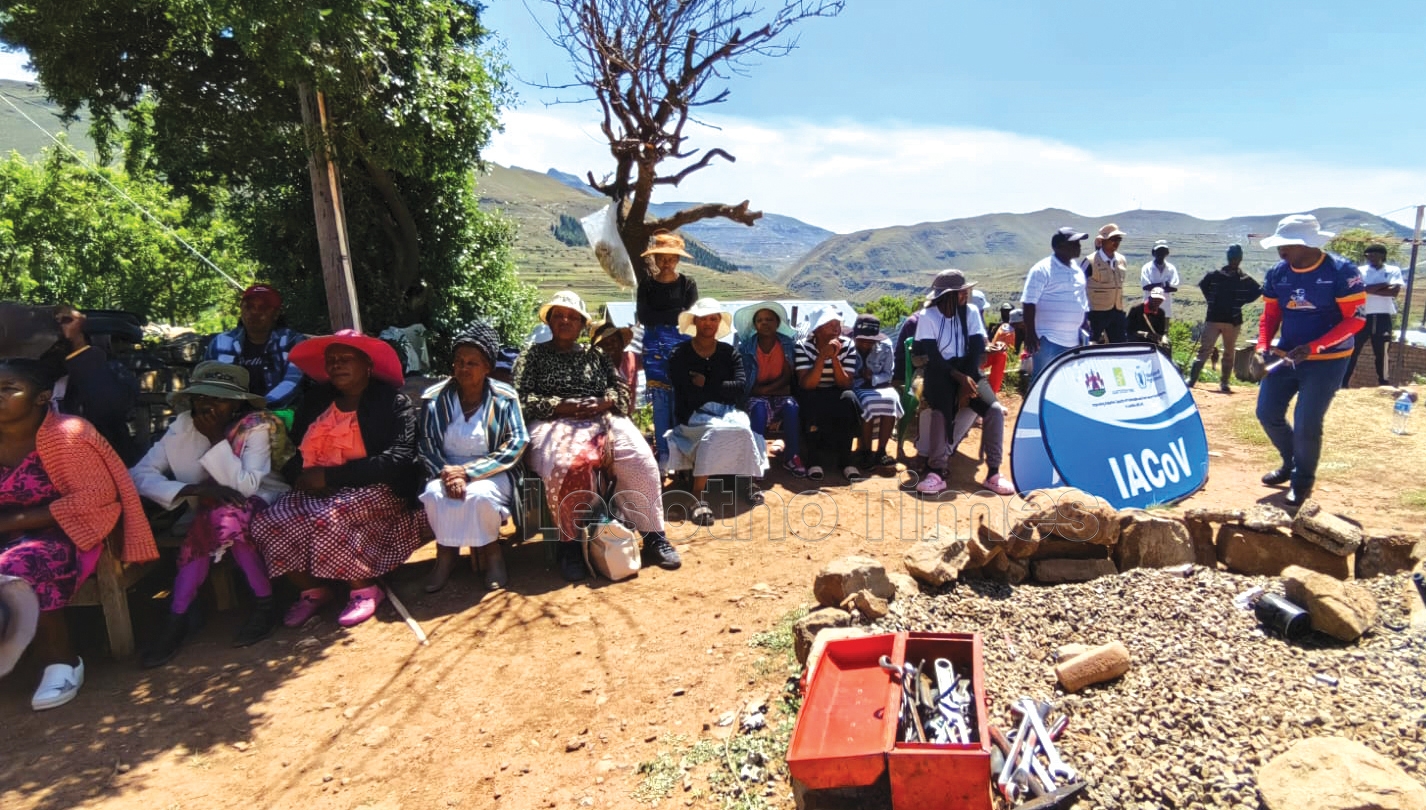Mathatisi Sebusi
NON-profit oriented organisation, Improving Adaptive Capacity of Vulnerable and Food Insecure Populations in Lesotho (IACOV), is conducting nationwide outreach initiatives to educate communities about climate change, its effects, mitigation strategies, and ways to build resilience against its harsh impacts.
These outreach activities have revealed a grim reality: the future of farming is under severe threat, with livelihoods negatively impacted by extreme weather conditions.
In Qacha’s Nek, for instance, residents express deep concern about the future of farming. Communities report significant challenges, as crops, vegetables, and livestock are deteriorating due to water scarcity and degraded rangelands.
According to IACOV Communications Officer, Rorisang Kurubally, the project operates on three fronts.
The first focuses on strengthening government capacity to generate climate information, forecast risks, mobilise early actions, and co-develop tailored and locally relevant climate services.
The second involves raising awareness among communities—especially women, youth, people living with HIV, and other vulnerable groups—on climate change, adaptation strategies, and seasonal planning using climate information.
The third aspect emphasises empowering communities through community-based planning, enabling them to implement resilience-building and adaptation strategies that promote sustainable asset creation, income diversification, and improved market access.
During a recent outreach in Mosaqane, Qacha’s Nek, area Chief Tšangoane Sehahle highlighted the devastating effects of climate change on his farming-dependent community.
“We are grappling with severe water shortages and rapidly deteriorating rangelands,” Mr Sehahle said.
“Livestock have little to no water to drink and no grass to feed on. Without adequate resources, livestock cannot survive, forcing farmers to sell their animals or move them elsewhere, which disrupts livelihoods.”
Mr Sehahle added that drought-induced impacts have plunged families into financial and food insecurity.
“Livestock farming is our major source of income, but the ongoing drought threatens this, pushing us towards poverty.”
Since 2022, the region has experienced persistent drought, leading to a decline in wool, mohair, and milk production. Mr Sehahle explained that income from selling wool and mohair, which previously sustained families throughout the year, now barely covered basic needs.
Speaking at the outreach, Deputy Chairperson of the National Climate Change Committee, Mofihli Phaqane, said there was an urgent need to address climate change.
Mr Phaqane stressed the importance of reducing greenhouse gas emissions, protecting the environment, and adopting sustainable practices. He advised communities to stop burning grass and focus on rehabilitating their rangelands. He also highlighted the need to protect wetlands and avoid grazing livestock in those areas while encouraging farmers to reduce livestock numbers to prevent overgrazing.
“The situation demands urgent attention. By working together and adopting sustainable practices, we can mitigate the impacts of climate change and secure the future of farming,” Mr Phaqane said.


1 comment
Hi there, just was alert to your blog via Google, and found that it’s really informative. I am gonna be careful for brussels. I will be grateful if you continue this in future. Lots of other people will probably be benefited from your writing. Cheers!